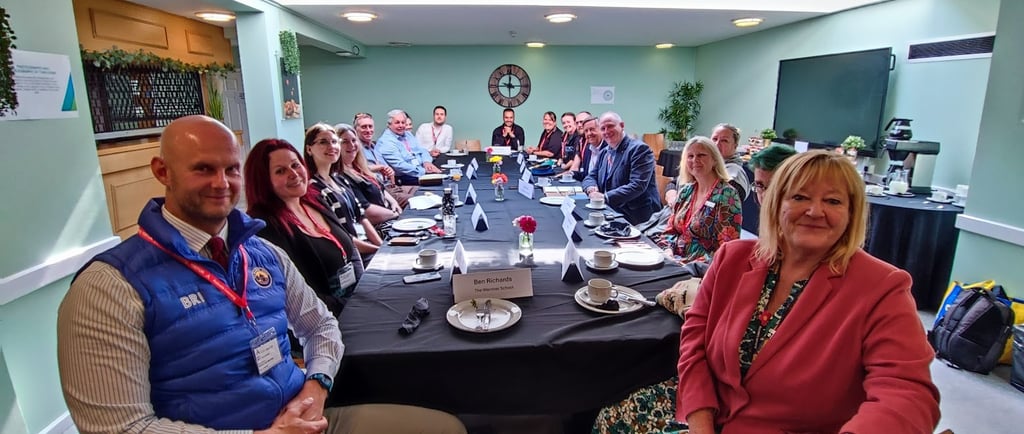“A Place to Belong”: A breakfast conversation in Banbury
5/20/20253 min read


As part of this year’s countywide series of Shrieval Breakfast Conversations, a diverse group of professionals came together in Banbury this morning to reflect on a vital question:
How can we better support young people in Oxfordshire—especially those who feel unheard, unseen, or unsupported?
The event was hosted at Banbury and Bicester College and brought together voices from education, policing, youth work, business, the voluntary sector, and local government. The conversation was open, honest, and deeply thoughtful. While contributions remain unattributed, under Chatham House rules, the ideas shared and commitments made were anything but quiet.
Themes That Emerged
A number of consistent and urgent themes surfaced throughout the morning:
A sense of disconnection: Young people are struggling to find meaning, identity and agency in a world that often feels closed off to them. Many feel they’re being pushed through a system that doesn’t reflect their lived reality.
The ‘18–24 gap’: Services and support tend to fall away just as young people are stepping into adulthood, creating a precarious period when they most need guidance.
A narrow educational narrative: The current system’s heavy emphasis on GCSE English and maths can demoralise those with different strengths—particularly those more inclined to practical learning.
Growing mental health needs: Anxiety, disengagement, and trauma are common. Support services are overstretched, thresholds are high, and the wait for help is long.
Lack of access to meaningful work: Traditional routes to employment—like Saturday jobs or apprenticeships—are increasingly inaccessible. Many young people are leaving education without having developed workplace confidence or resilience.
No place to go: Public spaces often feel unwelcoming or unsafe. Youth gatherings are sometimes misinterpreted as threatening, reinforcing a harmful cycle of suspicion and exclusion. Young people consistently say they need spaces where they can simply be.
Ideas and Actions Moving Forward
The conversation didn’t end with identifying problems—it moved towards practical, local action. Participants committed to taking forward a number of initiatives over the coming months, including:
Exploring the development of safe, informal, youth-led spaces in Banbury town centre.
Creating a publicly accessible directory of youth services, clubs, and opportunities—designed for young people to use themselves.
Strengthening employer engagement with schools and colleges to improve access to meaningful work experience.
Reviewing school and college timetables to make space for resilience-building and wellbeing activities.
Encouraging greater understanding and visibility of vocational and technical qualifications.
Promoting consistent, youth-led approaches to engagement across services—placing choice and agency at the heart.
Addressing barriers to support, such as complex referral processes and the lack of self-referral pathways.
Rebuilding relationships between the police and young people, through visibility in schools and proactive, non-stigmatising engagement.
Capturing and sharing youth voices authentically—through storytelling, podcasts, and creative media.
Identifying underused or empty commercial spaces that could be repurposed for youth use.
Supporting mental health needs not only through counselling but through everyday, trusted relationships with adults in education, services, and communities.
These pledges represent a shared commitment to listen differently, act collectively, and champion the potential of every young person.
Looking Ahead
This conversation was one of a series happening across Oxfordshire in 2025. Each one offers a unique local perspective. But together, they’re building a picture of what’s really needed—and what’s already possible when we work together.
A follow-up gathering will take place in early 2026 to reflect on progress and continue the momentum. In the meantime, the conversation continues—not just in meeting rooms, but in classrooms, youth centres, shop floors, and community spaces.
The message from Banbury was clear:
Young people need to feel welcome, supported, and believed in—not only through words, but through action.
When we create space for that to happen, we offer more than services—we offer hope, belonging, and a reason to believe in the future.
The Oxfordshire Shrievalty
Championing justice and community across Oxfordshire
© 2026. All rights reserved.
